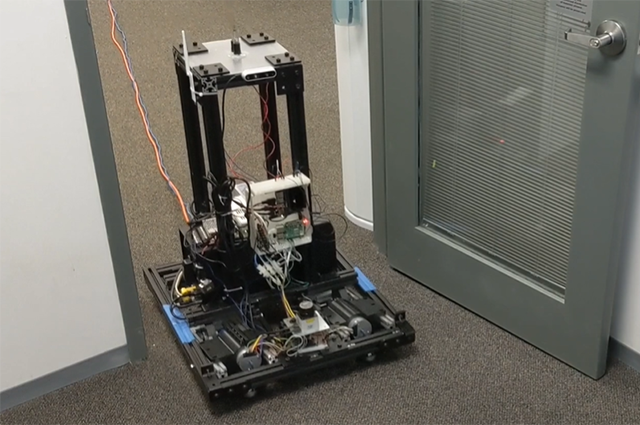Computer science team receives COVID-19 rapid response funding

This spring, Tufts University and Tufts Medical Center initiated a COVID-19 Rapid Response Seed Funding program to fast-track innovative research proposals that directly address the urgent needs of the COVID-19 pandemic. Professor Matthias Scheutz, Professor Diane Souvaine, Visiting Professor Matias Korman, and a team of researchers from the Human-Robot Interaction Laboratory (HRILab) were among the eight teams selected for funding.
In April, Evan Krause, Christopher Thierauf, and Zachary Haga, researchers in the Human-Robot Interaction Laboratory (HRILab) directed by Professor Matthias Scheutz, began developing a robot that could autonomously disinfect rooms using UVC light. The robot is instructed in natural language to drive into rooms and turn on its lamp, which shines damaging ultraviolet light onto the room’s surfaces, deactivating germs on those surfaces and in the air.
The team’s work laid a foundation for collaboration between the HRILab and Tufts Computational Geometry Research Group, which is now supported by the Tufts COVID-19 response grant awarded in June. Tufts Computational Geometry Research Group, led by Souvaine and Korman, will develop algorithms that will guide the robot through the room to ensure that all surfaces receive enough light exposure to break down any potential coronavirus particles.
Department:
Computer Science